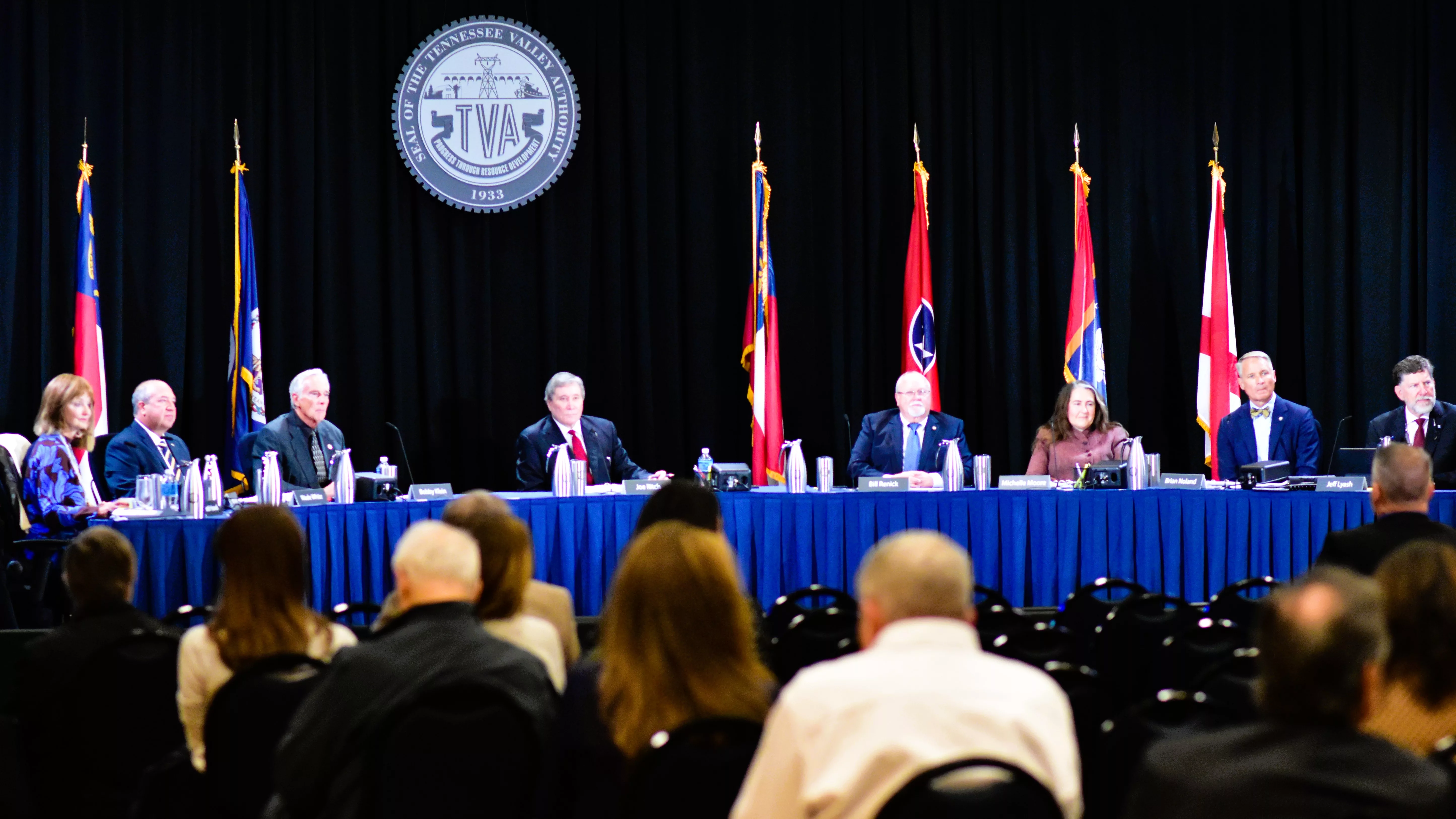
Local and regional officials convened on the third floor of Murray State University’s Curris Center Thursday morning, given privy to a rare and special appearance of the Tennessee Valley Authority and its Board of Directors quarterly meeting.
Though viewable through live stream services, these sessions rotate venues across a seven-state region — where more than 10 million Americans and their accompanying businesses are served by the power company and its many subsidiaries.
TVA, however, also serves legislators and the federal government, and this past Tuesday, the country’s citizens elected former U.S. President Donald Trump to a second non-consecutive term.
In 2017, during his first tenure, Trump announced the U.S. would no longer participate in the 2015 Paris Accords and Agreement, arguing that mitigating climate change would “undermine” the nation’s economy and create a “permanent disadvantage” of the country’s future.
The U.S. completed its four-year exit process November 4, 2020, just one day after Joe Biden was elected president.
In an interview with local media, President & CEO Jeff Lyash said that TVA would certainly follow the ebbs and flows of administration and national objectives, but the organization remains committed to its mission.
Under TVA’s “Clean Energy Leadership” plan, carbon emissions have been reduced 58% from their 2005 baseline, and a net-zero carbon emission edict has been promised completion by 2050. This year’s generation was 57% carbon-free, and another $1.5 billion is being invested through Fiscal Year 2028 to lower energy bills and energy use. Another $22 billion has been poured into EV and EV battery manufacturing, and the nation’s third-largest nuclear fleet will soon have the nation’s first small modular nuclear reactor.
Also, more than 4,000 megawatts of solar farming is either in operation or development, and by 2035, TVA wants 10,000 megawatts of sunshine supplying the Valley.
Lyash, and the board, are more than aware of land use concerns regarding massive solar structures. And he called those concerns grounded and founded.
A good example of land use, he said, is nearby in Paducah.
Speaking of land use, and municipalities making those decisions, officials out of Memphis, Tennessee, were paying close attention to actions taken during Thursday’s gathering.
Memphis Light, Gas & Water made an ask for firm power of approximately 150 megawatts from TVA — in order to support a supercomputer named “Colossus,” which is owned by Elon Musk’s 2023 startup company xAI.
The networking cluster requires more than 100,000 Nvidia GPU’s, and has recently been used to train the “Grok” series on large language models responsible for chatbots offered to “X” social media users.
Questions aside, TVA approved the measure for Memphis, but Lyash noted it does come with many conditions about power loads and peak demands.
More on Thursday’s visit to west Kentucky will come later.



